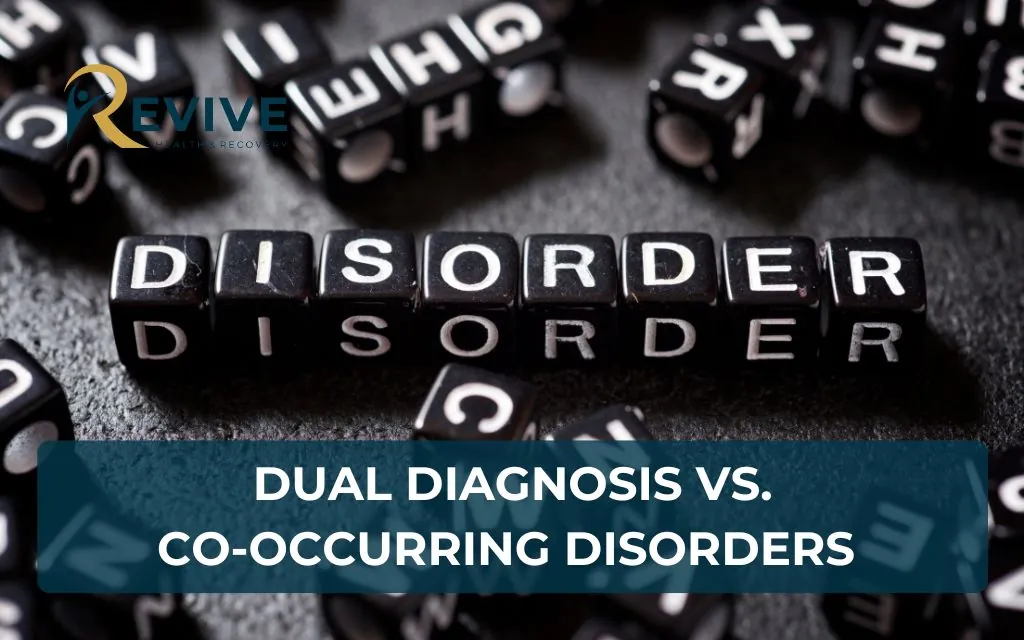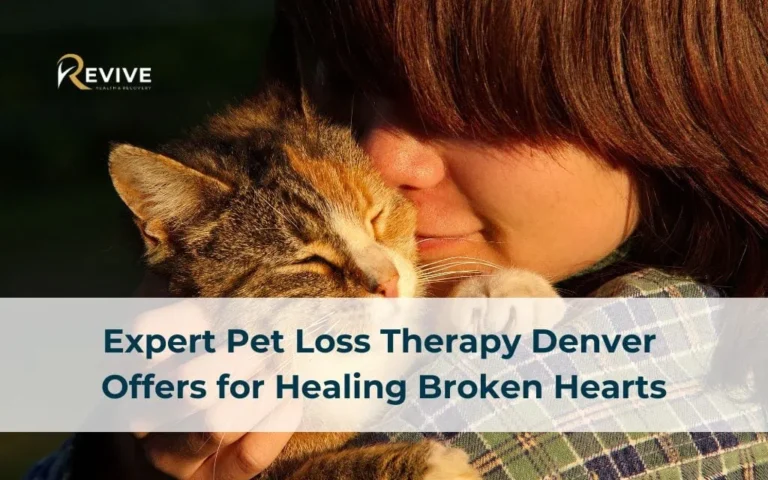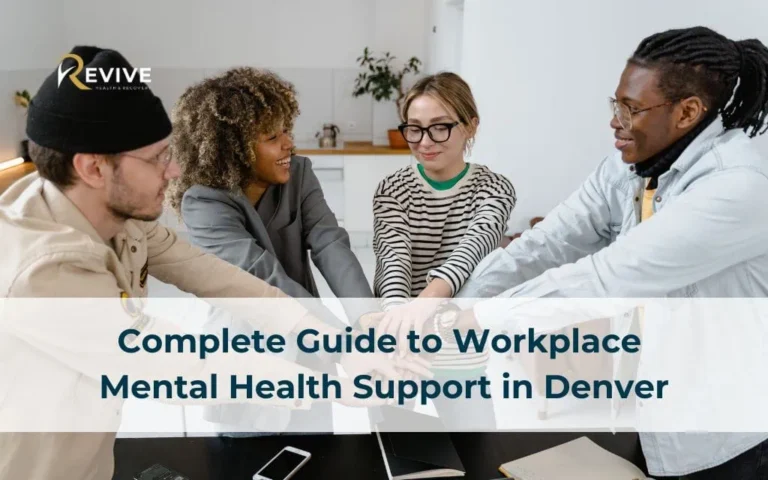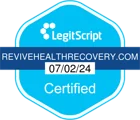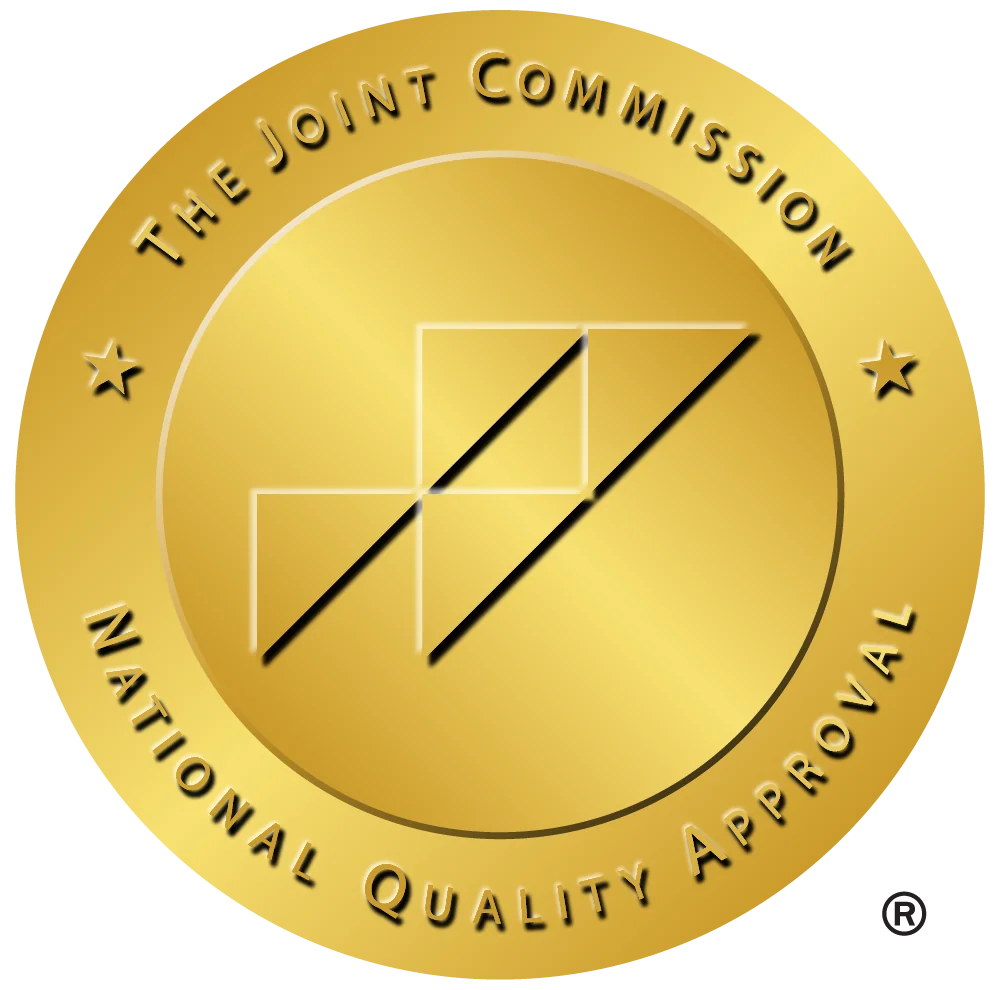Understanding the difference between dual diagnosis vs co-occurring disorders is critical in the field of mental health and addiction recovery. While these terms are sometimes used interchangeably, they represent distinct conditions that require unique approaches for effective treatment. With increased awareness of how mental health and addiction can intertwine, individuals, caregivers, and professionals need clarity on these definitions to choose appropriate interventions.
Revive Health Recovery in Denver, Colorado, offers a specialized focus on both dual diagnosis vs co-occurring disorders, providing expert guidance in understanding, diagnosing, and treating these complex conditions. Whether dealing with anxiety, PTSD, substance abuse, or depression, understanding the nuances between dual diagnosis and co-occurring disorders is crucial for effective treatment and lasting recovery.
Understanding Dual Diagnosis
Dual diagnosis is a term widely recognized in mental health treatment, particularly when mental illness and substance use disorders intersect. These cases present unique challenges as mental health symptoms can exacerbate addiction issues and vice versa, creating a complex cycle that requires specialized treatment.
What Dual Diagnosis Means in Mental Health Treatment
In mental health treatment, dual diagnosis refers specifically to the coexistence of a mental health disorder and a substance use disorder. Patients with a dual diagnosis face the simultaneous challenges of managing their mental health while also addressing substance use, which can complicate the recovery process if not properly treated. Treatment professionals, such as those at Revive Health Recovery, emphasize integrated approaches that address both disorders simultaneously, enhancing the potential for long-term success.

Common Conditions Associated with Dual Diagnosis
Dual diagnosis cases frequently involve specific mental health and substance use combinations. Some common conditions associated with dual diagnosis include anxiety, depression, PTSD, and substance abuse, among others. Below are examples of frequent dual diagnosis combinations:
Anxiety and Substance Abuse
Anxiety and substance abuse are often intertwined, with individuals using substances to self-medicate. Unfortunately, while alcohol or drugs may temporarily reduce anxiety symptoms, they often worsen the condition over time. Dual diagnosis treatment, particularly in facilities like Revive Health Recovery, addresses both the anxiety and the dependency on substances.
Depression and Alcohol Use Disorder
Depression and alcohol use disorder are frequently seen together in dual diagnosis cases. The effects of alcohol can amplify depressive symptoms, and individuals may drink to cope, leading to an unhealthy cycle. Dual diagnosis programs for co-occurring disorders offer integrated care that targets both depression and alcohol use, creating a balanced approach to recovery.
Defining Co-Occurring Disorders
Co-occurring disorders refer broadly to the presence of both a mental health condition and a substance use disorder, but the focus extends beyond simultaneous existence to understanding how these disorders interact and influence each other.
Co-Occurring Disorders in Mental Health and Addiction
In cases of co-occurring disorders, the mental health and substance use conditions may develop independently but eventually intersect, each influencing the other’s progression. These overlapping conditions create a complex dynamic that requires a careful and structured treatment plan. Unlike dual diagnosis, where the link between mental illness and substance use is more immediate, co-occurring disorders often involve long-term strategies that address each condition’s individual impact.
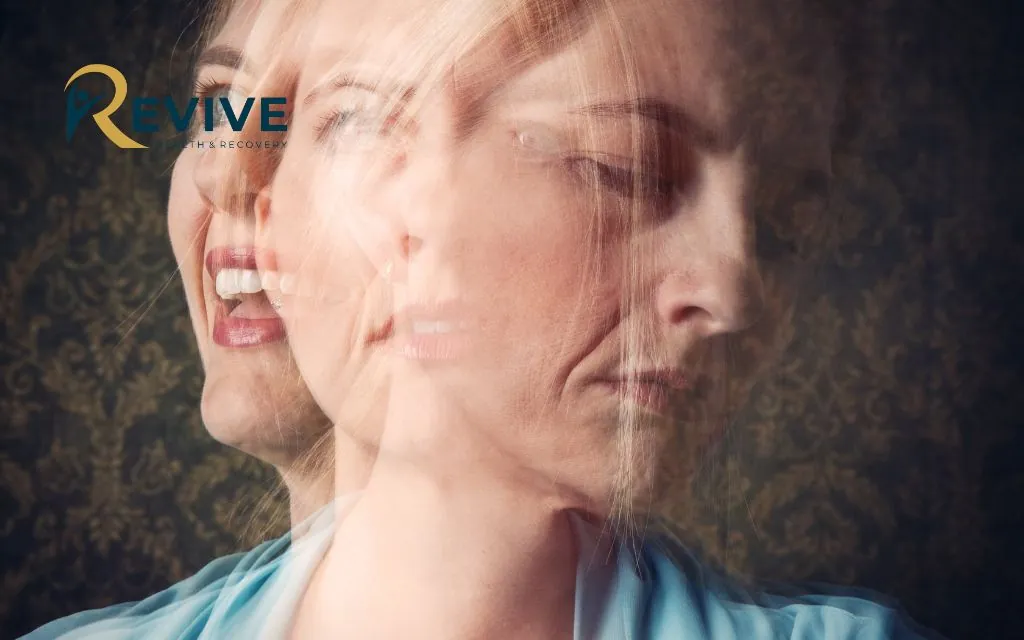
Typical Co-Occurring Conditions
Several mental health disorders frequently co-occur with substance use issues. Here are some examples:
PTSD and Substance Abuse
People with PTSD may turn to substances as a coping mechanism, leading to a destructive cycle. Co-occurring treatment programs focus on mitigating both the PTSD and the substance use to help patients regain stability.
Bipolar Disorder and Addiction
Bipolar disorder often co-occurs with addiction, as individuals attempt to regulate the emotional highs and lows associated with the disorder. Comprehensive treatment, such as the services offered at Revive Health Recovery, integrates care for both bipolar disorder and addiction, promoting mental stability and sobriety.
Key Differences Between Dual Diagnosis and Co-Occurring Disorders
Understanding the difference between dual diagnosis and co-occurring disorders is crucial for selecting the appropriate treatment approach. Although both conditions involve mental health and addiction issues, their implications for treatment and diagnosis are distinct.
Diagnostic Criteria and Timing
One of the primary distinctions lies in the diagnostic criteria and timing of each condition. Dual diagnosis typically involves the simultaneous onset of mental health and addiction issues, necessitating treatment approaches that address both. Co-occurring disorders, however, may have developed independently, with the conditions intersecting later. This impacts the therapeutic approach, as co-occurring disorders often require separate yet complementary treatments.
Why Distinguishing Between the Two Matters in Treatment
Properly distinguishing between dual diagnosis vs co-occurring disorders significantly impacts treatment success. For example, a dual diagnosis approach might prioritize immediate intervention for both conditions, while co-occurring disorder treatment may emphasize a phased approach. Facilities like Revive Health Recovery employ trained professionals who specialize in understanding these nuances, ensuring that each patient receives a treatment plan tailored to their specific combination of conditions.
Integrated Treatment Approaches at Revive Health Recovery in Denver
At Revive Health Recovery, located in Denver, Colorado, we believe that a dual diagnosis or co-occurring disorder treatment plan must be holistic and tailored to each individual’s needs. Our commitment is to provide high-quality, comprehensive care, from early diagnosis through long-term support.
Dual Diagnosis Programs for Holistic Healing
Revive Health Recovery’s dual diagnosis programs focus on holistic healing, integrating both psychological and physical treatment options. By combining therapies such as cognitive behavioral therapy (CBT), medication management, and support groups, our approach addresses the root causes of both mental health and addiction issues.
Treatment Modalities for Co-Occurring Disorders
For those with co-occurring disorders, Revive Health Recovery offers a structured, multi-faceted treatment program that addresses each condition. Our treatment options for co-occurring disorders in Denver include trauma-informed therapy, individual counseling, and family therapy, all of which are crucial in helping individuals develop lasting resilience and recovery.
Finding Support and Resources for Dual Diagnosis vs Co-Occurring Disorders
For those facing dual diagnosis or co-occurring disorders, finding effective treatment is essential but can also be a challenging process. Recovery journeys are often complex and deeply personal, necessitating a thorough evaluation of the support systems and resources available. Understanding the specific needs of each condition, from medical intervention to therapy types, will ensure that individuals get the comprehensive care they need.
Revive Health Recovery, based in Denver, Colorado, specializes in providing holistic, integrated care to support those dealing with both mental health and substance use challenges. With a focus on treating the entire person rather than isolated symptoms, Revive Health Recovery offers specialized programs that foster long-term recovery and resilience. The following sections will help individuals understand critical factors when choosing a treatment center and highlight the unique approach of Revive Health Recovery for dual diagnosis.
Key Considerations When Choosing a Treatment Center
When selecting a treatment center for dual diagnosis or co-occurring disorders, it’s essential to evaluate the facility’s expertise, treatment approaches, and level of support offered.

Here are some key considerations:
- Integrated Treatment Programs: Dual diagnosis vs co-occurring disorders require integrated care that addresses both mental health and substance use concurrently. Treatment centers like Revive Health Recovery provide a cohesive approach, ensuring that neither aspect of the diagnosis is overlooked.
- Experienced and Specialized Staff: Look for centers with licensed therapists, psychiatrists, and addiction specialists who have experience in treating complex cases involving dual diagnosis. Specialized training ensures that the staff understands the intricacies of co-occurring conditions and can offer nuanced, targeted care.
- Customized Treatment Plans: No two patients experience mental health and addiction challenges in the same way. Effective treatment centers should offer personalized plans that address individual needs, from therapeutic methods to aftercare programs. At Revive Health Recovery, treatment plans are tailored to each patient, with regular adjustments as progress is made.
- Availability of Comprehensive Therapies: High-quality centers provide a range of therapies, from cognitive behavioral therapy (CBT) and dialectical behavior therapy (DBT) to holistic options like mindfulness and art therapy. These varied approaches address different aspects of mental health and addiction, equipping individuals with a diverse set of coping tools.
- Aftercare and Long-Term Support: Recovery doesn’t end when treatment concludes. Reputable centers offer aftercare programs that provide ongoing support, relapse prevention planning, and regular check-ins to foster continued progress. This commitment to long-term support, as seen at Revive Health Recovery, helps individuals sustain their recovery and mental health.
- Dual Diagnosis and Co-Occurring Disorder Programs: It’s vital to verify that the treatment center offers specialized programs specifically for dual diagnosis vs co-occurring disorders. These programs should be comprehensive and address the unique relationship between mental health conditions and substance use.
- Family Involvement and Support: Family dynamics can significantly impact recovery outcomes. Centers that encourage family involvement in the recovery process help establish a support network that aids in long-term healing.
By carefully assessing these considerations, individuals and families can find a treatment center that offers the best chance for meaningful recovery and sustained mental health.
Revive Health Recovery’s Approach to Dual Diagnosis in Denver
Revive Health Recovery stands out as a leading provider of dual diagnosis and co-occurring disorder treatment in Denver, Colorado, offering a specialized approach grounded in holistic and individualized care. Our treatment philosophy centers on addressing each patient’s unique journey with respect and empathy, ensuring they feel supported throughout their recovery.

Here’s how Revive Health Recovery’s approach is tailored to dual diagnosis:
- Holistic and Integrated Care: At Revive Health Recovery, we treat the entire person rather than isolated symptoms. Our integrated care approach combines mental health and addiction treatment into one cohesive program, ensuring a seamless recovery experience. This approach addresses the root causes of each condition, helping patients build a strong foundation for long-term wellness.
- Comprehensive Therapy Options: Recognizing that no single treatment approach works for everyone, Revive Health Recovery offers a range of therapies to meet diverse needs. Patients have access to evidence-based therapies like CBT, DBT, and trauma-informed therapy, as well as holistic options like meditation, mindfulness, and creative therapies. This variety ensures that each person finds effective methods for managing both mental health and addiction.
- Expert Staff and Multidisciplinary Teams: Our staff comprises licensed mental health and addiction professionals who bring years of experience in treating complex cases of dual diagnosis. With psychiatrists, therapists, and addiction counselors on board, we deliver highly specialized care informed by the latest research and best practices in dual diagnosis treatment.
- Tailored Treatment Plans and Regular Evaluations: Understanding that every patient’s experience is unique, Revive Health Recovery develops personalized treatment plans that consider the specific mental health and substance use disorders a person is dealing with. Our team conducts regular evaluations to adjust these plans as patients progress, ensuring that treatment remains responsive to their evolving needs.
- Family and Community Support: At Revive Health Recovery, we believe that healing is a collective journey. Family involvement and community support are integral to our treatment model, empowering patients to establish a reliable support network. Our family therapy sessions help rebuild trust, improve communication, and provide loved ones with the tools they need to support long-term recovery.
- Aftercare Programs and Relapse Prevention: Recovery doesn’t end after treatment, which is why Revive Health Recovery places a strong emphasis on aftercare. Our aftercare programs include ongoing therapy sessions, support groups, and relapse prevention planning to help patients maintain their progress and navigate potential challenges post-treatment.
- Safe and Healing Environment: Located in Denver, Colorado, our facility is designed to provide a safe and serene environment where individuals can focus on healing. The supportive atmosphere encourages patients to explore personal growth and gain the strength needed to reclaim their lives.
Revive Health Recovery’s commitment to dual diagnosis and co-occurring disorder treatment empowers individuals to achieve a balanced, substance-free life. By embracing each patient’s unique journey and delivering integrated care, we guide our patients toward lasting recovery and mental wellness.
Conclusion
When it comes to mental health and addiction, understanding the terms dual diagnosis vs co-occurring disorders is essential for accessing appropriate care. At Revive Health Recovery in Denver, Colorado, we are committed to providing specialized support for individuals facing either dual diagnosis or co-occurring disorders. Our integrated, holistic programs are designed to help patients achieve lasting recovery and mental wellness. Whether dealing with anxiety, PTSD, or substance abuse, Revive Health Recovery offers a comprehensive path to a healthier, more balanced life.
